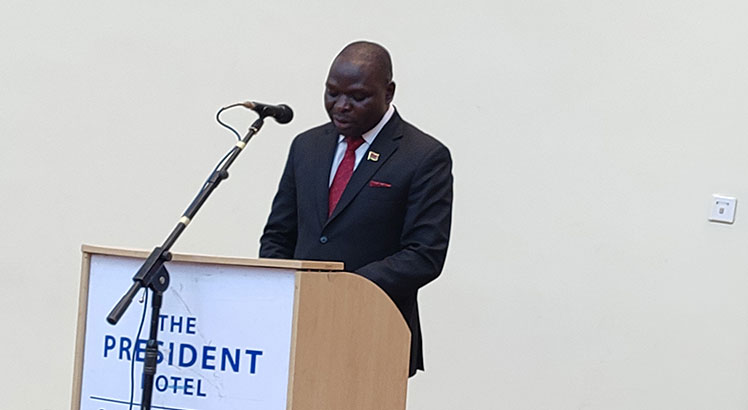Malawi lauds IMF support on debt restructuring
Minister of Finance and Economic Affairs Simplex Chithyola-Banda says it is encouraging that the International Monetary Fund (IMF) is supportive of Malawi’s debt restructuring programme despite not committing to debt relief yet.
Speaking in a telephone interview yesterday, he said the IMF was key in Malawi’s negotiations with its official bilateral and private sector creditors to restructure its debt classified as unsustainable.
Said Chithyola-Banda: “The fund has been very helpful on the debt restructuring process, but the conversations we had were not about debt cancellation. They were about the reforms we needed to restore economic stability.
“The reforms that we have put in place will help us promote economic growth. It is important that we grow to achieve the milestones we have set for ourselves and ensure we do not regress to the economic challenges that we have implemented in the past years.”

The minister’s sentiments come after IMF second deputy managing director Gita Gopinath said “successful debt restructuring is vital as there is no reasonable mix of adjustment and financing alone that can deliver macroeconomic stability”.
In an earlier statement, she said: “The Malawian authorities are seeking comparable treatment from all official bilateral creditors and continue to pursue good faith negotiations with commercial creditors.
“However, time is of the essence for debt relief, as further delays would result in greater financing gaps, which could then only be closed at an undesirably high cost to the population.”
The IMF has classified Malawi as a country in debt distress.
According to the Annual Public Debt Report released by the Ministry of Finance in September, the country’s total debt stock stood at K9.4 trillion, of which $3.94 billion was external debt and K5.6 trillion ($5.22 billion) was domestic debt or 75 percent of gross domestic product (GDP).
This is 15 percentage points higher than the 60 percent threshold recommended by global financial institutions such as the IMF and World Bank.
Reacting to the developments, economic analyst Bond Mtembezeka said Malawi might convince the donors to consider debt relief if the country commits and adheres strictly to the economic reforms in the Extended Credit Facility (ECF) programme.
He said: “Bilateral and multilateral lenders don’t just cancel debt for its sake. They need to see that the economy is committed to driving towards more sustainable debt.”
In his address to the United Nations General Assembly, President Lazarus Chakwera called on the donor community to cancel all debts amid concerns that debt and interest payments were stifling the capacity of low-income countries to develop.
Figures in the Reserve Bank of Malawi’s September issue of the Monthly Economic Monitor shows that the government has paid K385.5 billion or 23.8 percent of total budget expenditures on interest payments on existing debt.





